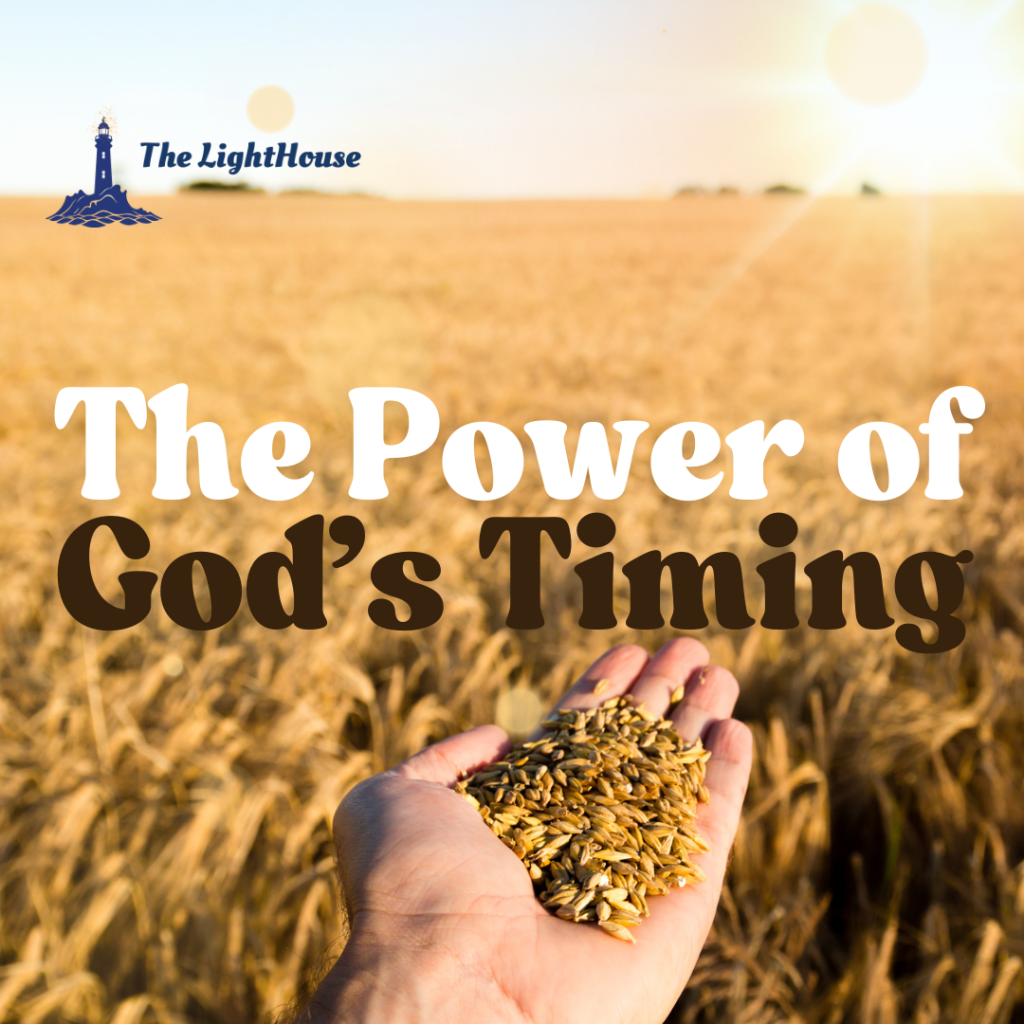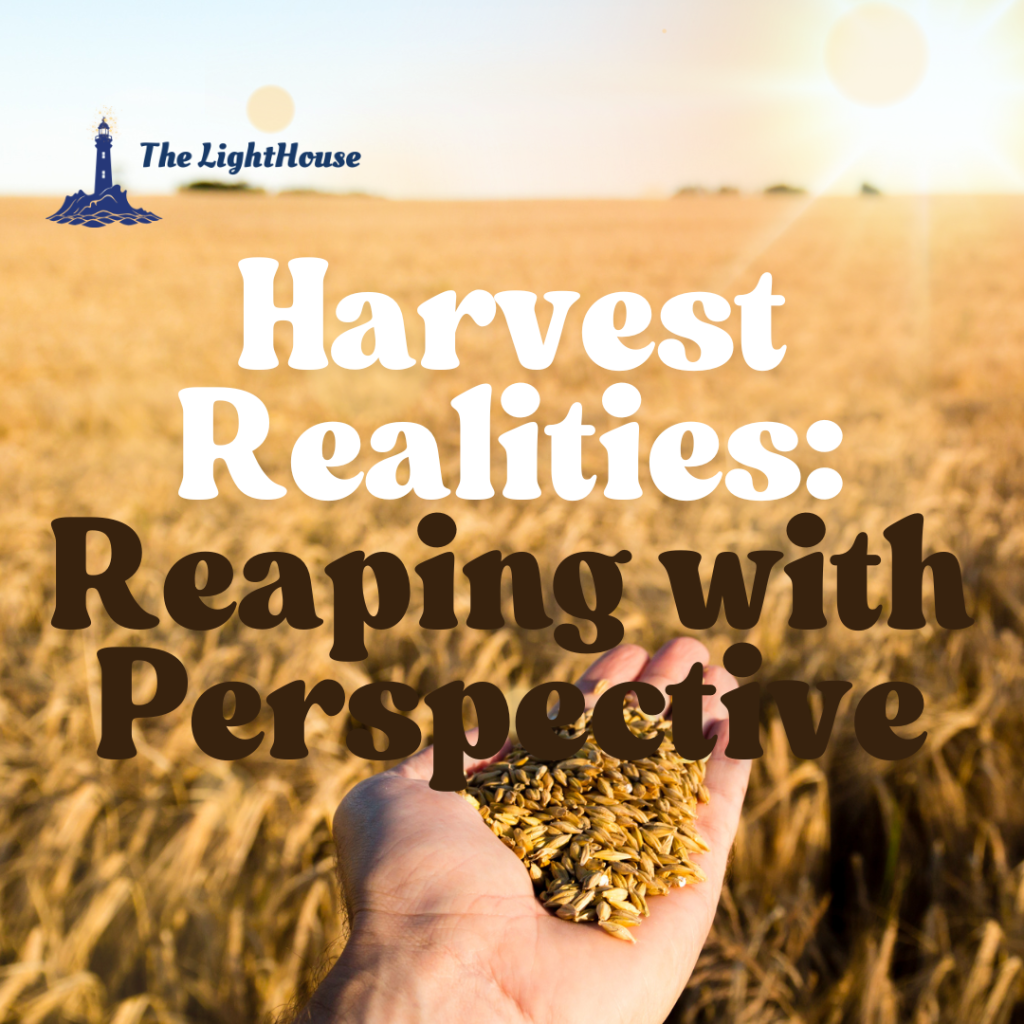“It is what you do with time that determines if ‘time will make things better.’”
This simple statement carries profound truth. Time in itself does not heal, change, or improve situations; it is what we invest into time that shapes the outcome.
In God’s order, harvests do not happen by accident. They are the product of seeds, the daily choices, actions, and faith decisions that build into a future reality. Every believer is a farmer, sowing either intentionally or carelessly. What we reap tomorrow will always reflect what we sow today.
Harvests are not random; they are the outcomes of seeds planted consistently. Paul reminds us: “Do not be deceived: God cannot be mocked. A man reaps what he sows” (Galatians 6:7).
The Power of God’s Timing

One of the greatest challenges for believers is learning to trust God’s timing. Many people attribute delays, failures, or mistakes to God when in reality, they are the result of poor sowing or impatience. Scripture reminds us: “There is a time for everything, and a season for every activity under the heavens” (Ecclesiastes 3:1).
God is All-Knowing
- He knows every action and motive of the heart (Jeremiah 17:10).
- He knows the end from the beginning (Isaiah 46:10).
- He knows all times and seasons (Daniel 2:21).
Because God knows perfectly, His timing is always right. The Israelites experienced this when God led them out of Egypt by the longer route: “God did not lead them on the road through the Philistine country, though that was shorter… So God led the people around by the desert road toward the Red Sea” (Exodus 13:17–18). What looked like delay was actually protection.
Even in difficult seasons, our faith should point us back to God. Too often, we look for attention rather than listening for His voice. Taking time to inquire of the Lord before decisions ensure we plant in alignment with His will (2 Samuel 5:19). Ignoring His counsel often leads to unnecessary losses.
Presuppositions to Divine Leading
- God’s time is best (1 Samuel 13:7–10). Acting before God’s time leads to chaos.
- God’s way is best (Isaiah 55:8–9). His methods vary, and we must submit.
- God’s Word is best (2 Timothy 3:16–17). Scripture is always a sure guide.
When we minister to the Lord and wait in His presence, we leave with a clear sense of direction. It may not be immediate, but when it comes, it will be better at the right time.
Harvest Realities: Reaping with Perspective

Harvest is the joyful outcome of good sowing, but it is also a moment of accountability. What we reap depends entirely on what we sowed in the soil of time.
Tangible Results of Unity and Obedience
Every time believers come together in one accord, the result is tangible. At Pentecost, “they were all with one accord in one place” (Acts 2:1), and the Spirit was poured out in power. Kingdom building takes time, resources, and unity, but the results are always worth it.
Redirecting Our Wonder
At all times, the Word and love of God should bring us to awe. If we lose wonder, we risk treating divine things as common. Sometimes, God veils His plans because the time is not yet right (Daniel 12:9). At the right time, however, He reveals them to strengthen our faith.
Practical Habits for Fruitful Sowing
Forming godly habits requires patience, persistence, and intentionality:
- Identify your goal: clarity sharpens focus.
- Start small: do not despise small beginnings
- Create cues: tie habits to existing routines.
- Have a place and time: structure fosters consistency.
- Make a plan: be deliberate, not vague.
- Be consistent, patient, and persistent: growth takes time.
Seemingly difficult disciplines like prayer, fasting, or Bible study become easier when we invest time in mastering them.
Lessons in Reaping
- Sometimes, the harvest is not immediate but delayed for growth.
- Sometimes, the harvest looks different than expected but carries God’s greater purpose.
- Sometimes, the harvest comes in stages, first the blade, then the head, then the full grain (Mark 4:28).
Conclusion
Seedtime and harvest is a principle that governs both natural and spiritual life. Time in itself does not improve things; it is what we do with time — the seeds we plant — that determines the quality of our harvest.
Sometimes, it is not external enemies but our habits that rob us of harvest. These include:
- Lack of rest and good sleep.
- Excessive screen time.
- Poor diet and lack of exercise.
- Living in comparison rather than contentment.
Scripture calls us to stewardship of our bodies and minds: “Do you not know that your bodies are temples of the Holy Spirit…?” (1 Corinthians 6:19). Neglecting these areas is like sowing weeds into our future.
Let us, therefore, redeem the time. In every season, may we sow wisely, wait patiently, and harvest abundantly to the glory of God.
